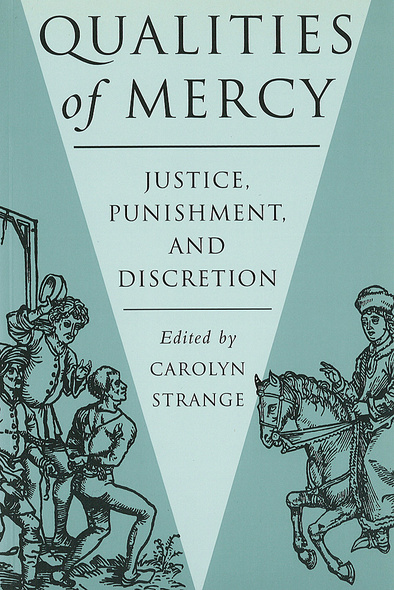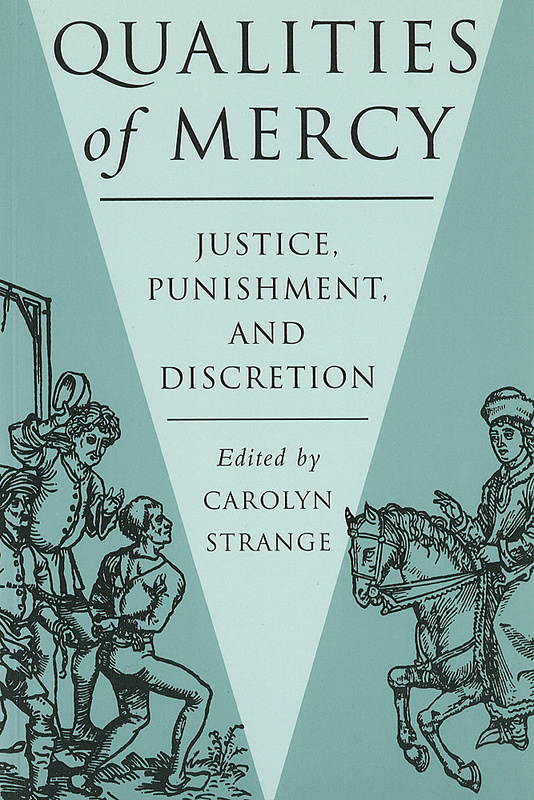
Qualities of Mercy deals with the history of mercy, theremittance of punishments in the criminal law. The writers probe thediscretionary use of power and inquire how it has been exercised tospare convicted criminals from the full might of the law. Drawing onthe history of England, Canada, and Australia in periods when bothcapital and corporal punishment were still practised, they show thatcontrary to common assumptions the past was not a time of unmitigatedterror and they ask what inspired restraint in punishment. Theyconclude that the ability to decide who lived and died -- through theexercise or denial of mercy -- reinforced the power structure.
The essays are an important contribution to current public policydebates. If today's move towards unyielding and harsher punishmentproceeds, including campaigns to reinstate capital punishment, mercyalone will fail to neutralize the inequities of criminal justice. Onlyprofound cultural shifts and transitions of sensibility have the forceto stem the tide of unprecedented punitiveness.
This thought-provoking and well-written book will be of particular interest to students of law, sociology, public policy, and criminal justice administration.
A major contribution to the historiography of crime and punishment in the Anglo-Saxon commonwealth ... a profoundly scholarly and at the same time intensely practical evocation of the value of historical method in challenging the cant, myth-making, and simplistic grandstanding of those who see the solution to all our ills as lying in a return to retribution and punitiveness.
This book contains original essays written by leading members of the new generation of historians concerned with criminal law and punishment ... the authors cause us to reflect on how the quest for justice and mercy that has characterized progressive penal policies is being eroded in the present climate of punitiveness. Given its enduring theme and exemplary research, Qualities of Mercy will not only serve as an important history for the present, but also as a lasting influence on scholarship in the future.
Foreword / Douglas Hay
Acknowledgments
Introduction / Carolyn Strange
1. Civilized People Don't Want to See That Sort of Thing: TheDecline of Physical Punishment in London, 1760-1840 / Greg T.Smith
2. In Place of Death: Transportation, Penal Practices, and theEnglish State, 1770-1830 / Simon Devereaux
3. `Harshness and Forbearance': The Politics of Pardons and theUpper Canada Rebellion / Barry Wright
4. Savage Mercy: Native Culture and the Modification of CapitalPunishment in Nineteenth-Century British Columbia / TinaLoo
5. Discretionary Justice: Political Culture and the Death Penalty inNew South Wales and Ontario, 1890-1920 / Carolyn Strange
Punishment in Late-Twentieth-Century Canada: An Afterword /Anthony N. Doob






